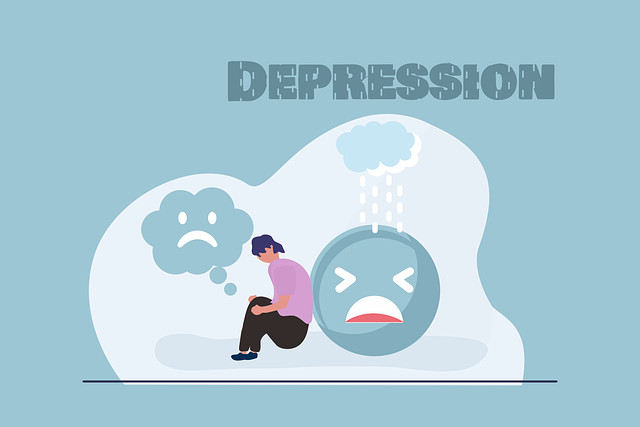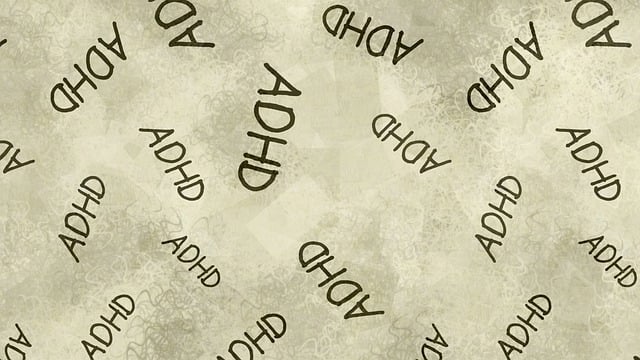The Resilience-Building Framework (RFM), inspired by the Littleton International Adoptions Therapy, is a holistic approach to enhance mental resilience through three core components: Recovery, Flexibility, and Mastery. This method combines emotional strength techniques from adoption therapy with practical mood management strategies, fostering self-awareness and improved well-being. Through mindfulness exercises, adaptability training, and group support networks, RFM boosts individual and collective resilience, measured by sustained behavioral changes tracked through pre- and post-training surveys, as demonstrated by Littleton International Adopts Therapy's successful programs.
“Uncover the power of resilience with an in-depth look at the RFM (Resilience-Building Framework) and its practical applications. This article explores a therapeutic approach inspired by the Littleton International Adoptions Therapy, offering a structured path to fostering adaptability. We’ll guide you through implementing RFM exercises in diverse settings, from personal growth to group dynamics. Additionally, we’ll delve into measuring the long-term effects of resilience training, providing insights for professionals and enthusiasts alike.”
- Understanding RFM: An Overview of the Resilience-Building Framework
- The Littleton International Adoptions Therapy Approach
- Implementing RFM Exercises: Strategies for Personal and Group Settings
- Measuring Success and Long-Term Impact of Resilience Training
Understanding RFM: An Overview of the Resilience-Building Framework

The Resilience-Building Framework (RFM) is a structured approach designed to enhance individuals’ ability to cope with challenges and adversity, fostering mental resilience. Developed by experts in the field of therapy, it draws on powerful principles like those found in Littleton International Adoptions Therapy, which has long emphasized the role of emotional strength in successful adoption and adjustment. RFM focuses on three key components: Recovery, Flexibility, and Mastery.
Recovery refers to an individual’s capacity to bounce back from difficult experiences or setbacks, while Flexibility entails adapting to change and managing emotions effectively. Mastery involves taking control and making positive choices despite challenges. By combining these elements, the RFM provides a holistic framework for navigating life’s complexities. This approach aligns with core Mind Over Matter Principles, promoting self-awareness and practical strategies for Mood Management, ultimately contributing to enhanced Mental Health Awareness and overall well-being.
The Littleton International Adoptions Therapy Approach

The Littleton International Adoptions Therapy Approach is a unique and comprehensive method designed to support individuals navigating adoption and fostering processes. This therapy model recognizes that adopting or being fostered is more than just legal procedures; it’s a profound emotional journey. Thus, it focuses on holistic healing, encompassing not just the child’s needs but also those of the adoptive parents. The approach emphasizes open communication strategies, encouraging honest discussions about feelings, challenges, and hopes.
Through various exercises tailored to boost confidence and improve self-esteem, Littleton International Adoptions Therapy helps individuals build resilience. These activities foster a sense of belonging and security, addressing common fears and uncertainties associated with adoption. By integrating evidence-based practices, the therapy approach ensures that each participant receives personalized support, enabling them to thrive in their new family structures.
Implementing RFM Exercises: Strategies for Personal and Group Settings

Implementing RFM (Resilience, Flexibility, and Mindfulness) exercises is a powerful approach to enhancing personal and group resilience, as exemplified by Littleton International Adoptions Therapy. These practices are designed to help individuals navigate life’s challenges with greater equanimity. In personal settings, individuals can begin by cultivating mindfulness through activities like meditation or deep breathing exercises, which allow them to stay grounded in the present moment, reducing anxiety and stress. Incorporating flexibility into one’s routine involves learning to adapt to changing circumstances, fostering a sense of control and resilience.
Group settings benefit from collective RFM practices that promote emotional intelligence. Shared experiences can strengthen bonds and encourage open communication. For instance, group discussions about stress reduction methods or depression prevention strategies, guided by trained facilitators, can provide valuable support networks. By combining these techniques, individuals and groups can enhance their overall well-being, better cope with adversity, and foster a sense of community that supports resilience building.
Measuring Success and Long-Term Impact of Resilience Training

Measuring the success and long-term impact of resilience training is a crucial aspect often overlooked but immensely valuable. At Littleton International Adoptions Therapy, we’ve witnessed firsthand how these exercises can transform lives. Our approach combines various methods, from structured workshops to engaging podcast series, designed to empower individuals with effective stress management tools and positive thinking strategies.
The true metric of success lies not just in immediate improvements but in sustained behavioral changes. By regularly assessing participants’ progress through pre and post-training surveys, we track their ability to cope with challenges, manage stress levels, and maintain mental wellness. This data not only helps us refine our programs but also provides tangible evidence of the positive impact on individuals’ overall well-being, often extending far beyond the duration of our interventions.
Resilience is a vital skill in navigating life’s challenges, and the RFM framework offers a structured approach to building this strength. As demonstrated by the Littleton International Adoptions Therapy Approach, combining evidence-based practices with a holistic perspective can significantly enhance individuals’ ability to cope. By implementing RFM exercises in both personal and group settings, we empower people to foster resilience, adapt to change, and thrive despite adversity. Continuous evaluation and measurement of these programs ensure their effectiveness and longevity, ultimately contributing to improved mental well-being and success stories that resonate across diverse communities.














